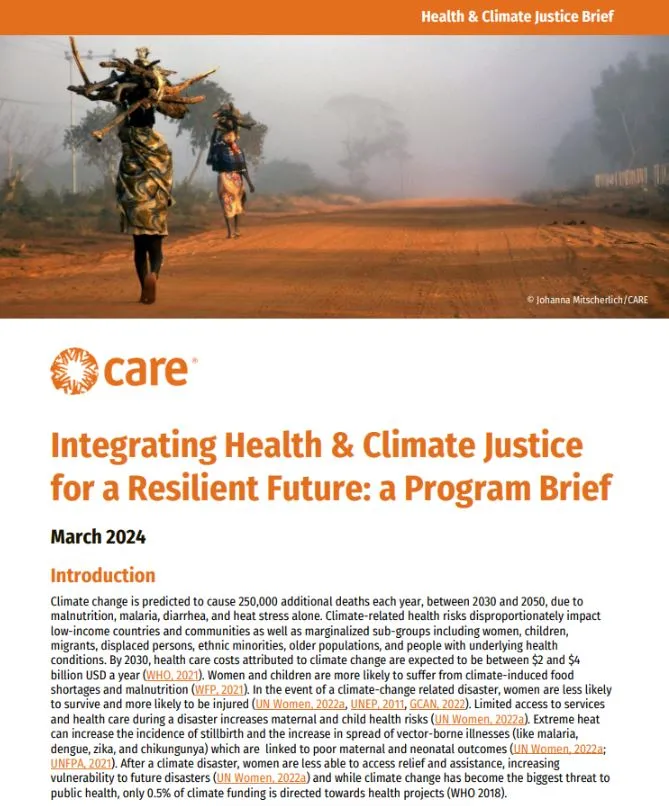
Climate change is projected to lead to 250,000 more deaths annually from 2030 to 2050 due to malnutrition, malaria, diarrhea, and heat stress. Low-income countries and marginalized groups like women, children, migrants, ethnic minorities, older people, and those with health issues are most vulnerable to these climate-related health risks.
Over the past few months, the gender justice team has been conducting desk reviews and consultations to understand the current knowledge and magnitude of technology facilitated gender-based violence. This document is developed from publications by UNFPA; UN women; center for information resilience and from research and articles presented during the SVRI forum 2024 and other similar learning events. Read More
In April 2022, CARE helped pass the Violence Against Persons Prohibition (VAPP) Act in Yobe State, Nigeria through intensive advocacy and collaboration with partners working to address gender-based violence (GBV). This advocacy brief explores the journey towards the VAPP Act, challenges, lessons learnt and next steps. Read More
Martawa Zuromaye (‘Dignity and Security’ in the Kanuri language), is a five year project implemented in Yobe state northeast Nigeria, focused on addressing and reducing these different forms of GBV in the region. Each brief details the different stakeholders including girls, and community leaders that have been positively impacted by the project, and becoming active changemakers within their community. Read More